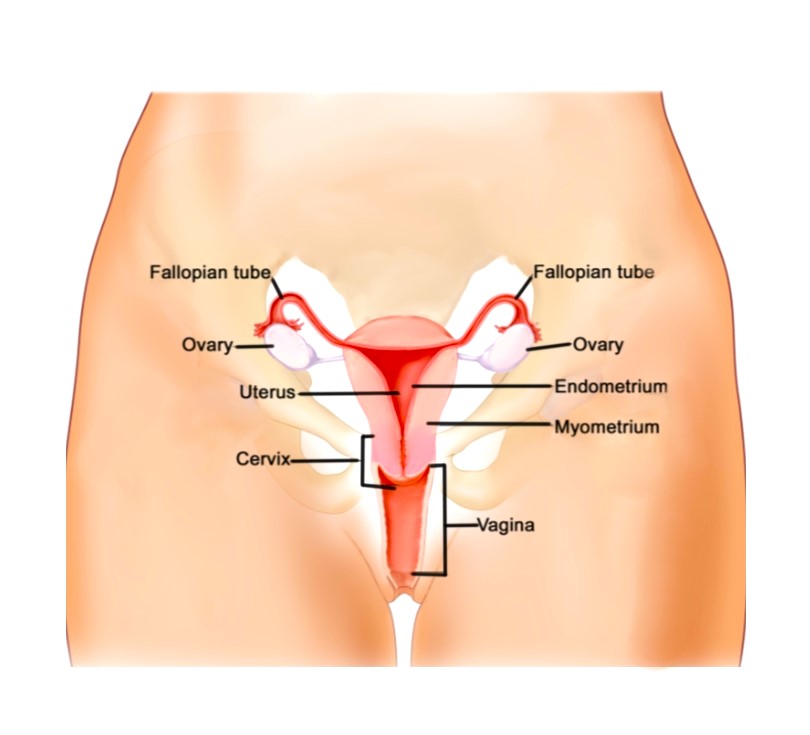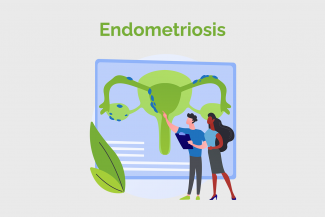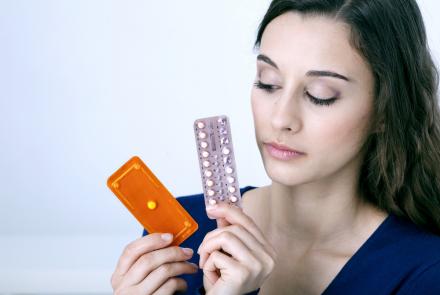
What is endometriosis
Endometriosis is a gynecological condition in which endometrial tissue (tissue that lines the uterus wall) is found outside the uterus (often referred to as endometrial implants). This is mostly found in the peritoneum (membrane that lines abdominal cavity and surrounds internal organs), ovaries, fallopian tubes, ureters, bladder, bowel and cul-de-sac (the space behind the uterus).
Endometrial tissue in the uterus is under the influence of oestrogen (a female hormone). Endometrial implants are also influenced by the hormone and respond in a way that is similar to the cells found inside the uterus. They grow and bleed like the uterine lining does during the menstrual cycle. These patients often experience chronic pelvic pain, infertility, painful periods, painful ovulation, pain during and after sexual intercourse and abnormal bleeding. It can impact general physical, mental and social well-being. Some women with endometriosis experience few or no symptoms and in some, infertility may be the only symptom of endometriosis.
 Figure 1: Female reproductive system with its parts labelled
Figure 1: Female reproductive system with its parts labelled
Endometriosis affects 1 in 10 women in their reproductive age (ie, usually between the ages of 15-49). It was once believed to be a disease of older women but nearly 70% of teens with pelvic pain are later diagnosed with endometriosis. Some specialists feel that endometriosis is more likely to be found in women who have never been pregnant.
Endometriosis affects millions of women worldwide, but many remain undiagnosed because of lack of symptoms or because of the dismissal of the pelvic pain in endometriosis as a normal menstrual pain, even by the physicians. The therapy for endometriosis depends on patients’ preferences ie, to get relief from the pain or to correct the associated infertility, both of which, if uncorrected, can affect the quality of life of the women.








